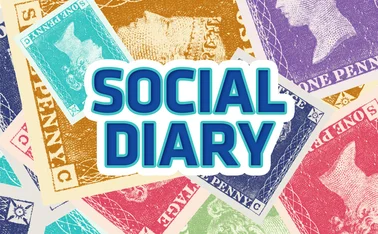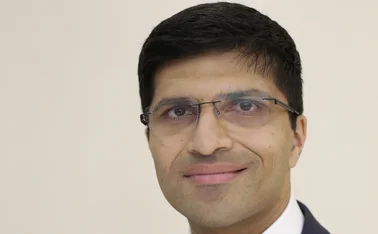
Diversity and Inclusion in Insurance Award winner; Claims Consortium Group's Debbie Mawer

Following last month's Diversity and Inclusion in Insurance Awards we caught up with all the winners. Today we feature The Mental Health Champion Debbie Mawer, director of people and culture at Claims Consortium Group.
Can you explain the thinking behind the company values ‘What Really Matters’ and why this is important in helping you raise mental health awareness?
Putting together our values was a fantastic experience. The first step was bringing all our staff together to share past success stories and get under the skin of why those stories mean so much to us. In doing this we created a template of how we want to behave and the things that are most important to us, in a nutshell; ‘What Really Matters’. From this the four values were created:
- We do the right thing
- We care for our people
- We love what we do
- We lead the way
This now means we always look for ways we can bring these to life across the business.
Mental health training and development is an excellent example of this. I believe that businesses should not just be maintaining a primary duty of care for their employees but should be actively engaged in ensuring the overall wellbeing of their people. Additionally, as a customer-facing business, we will deliver the best possible customer service by supporting our people to be happy and engaged.
Introducing and prioritising mental health training and development has had such a positive effect on the general mindset of the business. People are much more conscious of caring for their mental health and that of others. We now have over 40 mental health first aiders across our company and a waitlist of many more. We are introducing other initiatives such as the Winter Wellness Campaign, which helps with advice and support to help people, particularly over the festive period.
Can you explain what the ‘Creative Learning’ initiative is, and describe the work you have done to increase acceptance of neurodevelopmental disorders at CCG?
Creative learning was born out of our understanding that not all people are the same. Learning styles, neurodiversity disorders and ability differ and every company has an opportunity, or an obligation to ensure that training is delivered in the most optimum way for our people to be able to interpret. A lot of this comes directly from our founder and CEO who credits much of his success to his dyslexia, which enables him to think differently and approach things from a different angle, seeing opportunities other people might miss.
What this means in practice is we have to work harder, smarter and more creatively in the learning & development team to find solutions that work for everyone.
We have ‘read and write’ software available for any staff who requires it to help read and interpret documents. In addition to this, we have created an audio library of content to help support our people to achieve recognised qualifications when reading and digesting a textbook full of information may have been their barrier to success.
Our masterclass, a range of on-going training and support, provides workshop-based learning on a variety of 11 core topics including conversation management, vulnerable customers, complaints handling, and coaching for leaders. We provide space and time for people to fully understand the topic and ask relevant questions to improve their learning. The masterclass range is backed up by an e-learning module system.
Underpinning a lot of this is the mental health work we have championed. Recognising signs and symptoms of mental health disorders and neurodiversity issues is critical as often people may not know they have them, or may not wish to talk openly about them. We make this more accessible by opening the course up to everyone. This means our trained staff are different ages, gender races and religions, and it is easier for people to access the help and support they need in a way that feels right for them.
What has the response and impact been?
Our people love it. Many staff have said that in previous employment they have felt pigeon-holed or labelled due to a neurodevelopmental disorder. With this initiative, we have developed careers and helped with the personal development of many who previously felt unable to access such opportunities.
Our award-winning career development tool, Evolve, gives all staff the chance to pursue qualifications to increase their knowledge, or to progress by being amazing at what they do every day because there is no ‘one-size-fits-all’ when it comes to developing your people. We know qualifications are not for everyone and there is more than one way to show increased value, knowledge and application in the workplace and reward for this.
Our people have embraced this and we have had great feedback on this approach and how it has helped people to do their jobs better.
You have also overseen the introduction of mental health first aid training; what has the response been?
It has been fantastic to be able to open up a topic such as mental health first aid, which for too long has been an understated area of personal development. It has allowed our staff to talk openly and has seen over 40 of our team become mental health first-aid trained. We have also made sure that all of our leaders have had awareness training for mental health.
We have had really positive feedback in particular, that it has helped people feel more confident and has given them a better understanding of their behaviour and others.
We have also had great feedback from those who are customer-facing. Making an insurance claim can be stressful and upsetting for anyone. Our mental health first-aiders have fed back that the training helps them empathise better with policyholders and identify vulnerable customers better to ensure they are supported in the best way.
In terms of what you are doing, how supportive is the CCG management?
The management team here is incredibly supportive. Our mindset has always been that better people make better employees and our focus has very much been on the personal development of our people, ensuring that everyone has the same access to qualifications, training and development.
It is historically a hard sell with some boards when you ask for investment into areas that might not traditionally be viewed as essential training or development. However, the combination of our leadership team and our values, ‘What Really Matters’, means that we openly pursue and celebrate opportunities such as the neurodiversity work.
What was it like being a winner at the inaugural Diversity and Inclusion in Insurance Awards?
It was very humbling to be in the shortlist among companies and individuals who do such fantastic work to bring diversity and inclusion to life, and incredible to be named as a winner. Having these dedicated awards for inclusion and diversity is essential in helping us showcase and recognise the fantastic range of fantastic work that is going on across the industry and bringing that to life.
Only users who have a paid subscription or are part of a corporate subscription are able to print or copy content.
To access these options, along with all other subscription benefits, please contact info@postonline.co.uk or view our subscription options here: http://subscriptions.postonline.co.uk/subscribe
You are currently unable to print this content. Please contact info@postonline.co.uk to find out more.
You are currently unable to copy this content. Please contact info@postonline.co.uk to find out more.
Copyright Infopro Digital Limited. All rights reserved.
As outlined in our terms and conditions, https://www.infopro-digital.com/terms-and-conditions/subscriptions/ (point 2.4), printing is limited to a single copy.
If you would like to purchase additional rights please email info@postonline.co.uk
Copyright Infopro Digital Limited. All rights reserved.
You may share this content using our article tools. As outlined in our terms and conditions, https://www.infopro-digital.com/terms-and-conditions/subscriptions/ (clause 2.4), an Authorised User may only make one copy of the materials for their own personal use. You must also comply with the restrictions in clause 2.5.
If you would like to purchase additional rights please email info@postonline.co.uk








